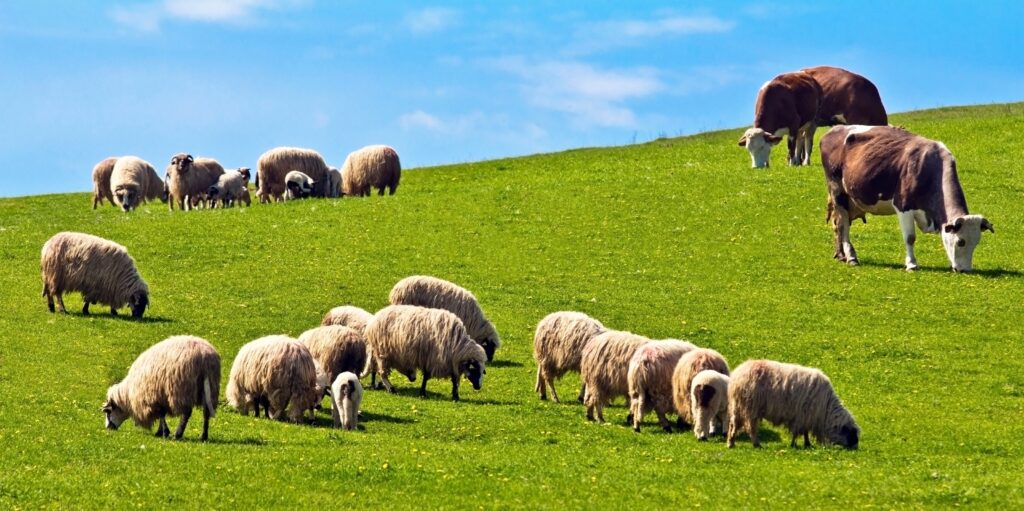Food: Agricultural emissions arise primarily from ruminant animals – in particular cows and sheep – which digest grass in the first of their two stomachs in a process that releases methane and from land-use change.
Converting forestry to agricultural land leads to the release of the carbon stored in the forest and the loss of future carbon storage as the trees grow. In addition, ploughing the land releases carbon stored in the soil, and using Nitrogen based fertilisers to stimulate plant growth leads to further emissions. The motivation for this conversion of forestry land is to increase food production, but is greatly exacerbated by the demand for meat eating. Growing grain and other feed for cows, pigs and sheep is exceptionally inefficient, as up to 80 times more grain is required to create the same calories for a meal of meat as for a meal made from the original grain. As a result, our commitment to zero emissions in 2050 requires that we refrain from eating beef and lamb.
Biomass: Could we use modern technology to harness even more biomass to make other fuels, such as biodiesel or kerosene? Our Absolute Zero report reveals that more than 20% of the world’s total annual harvest of new biomass is already ‘appropriated’ by humans for wood, food and fodder. This annual harvest is the fundamental source of habitat and food for all non-aquatic species. Any further appropriation by humans is likely to be dangerously harmful to other species and the effect of deforestation rates is already a major contributor to emissions. This evidence suggests that modern bio-fuels are incompatible with any wider sustainability of life on earth.






